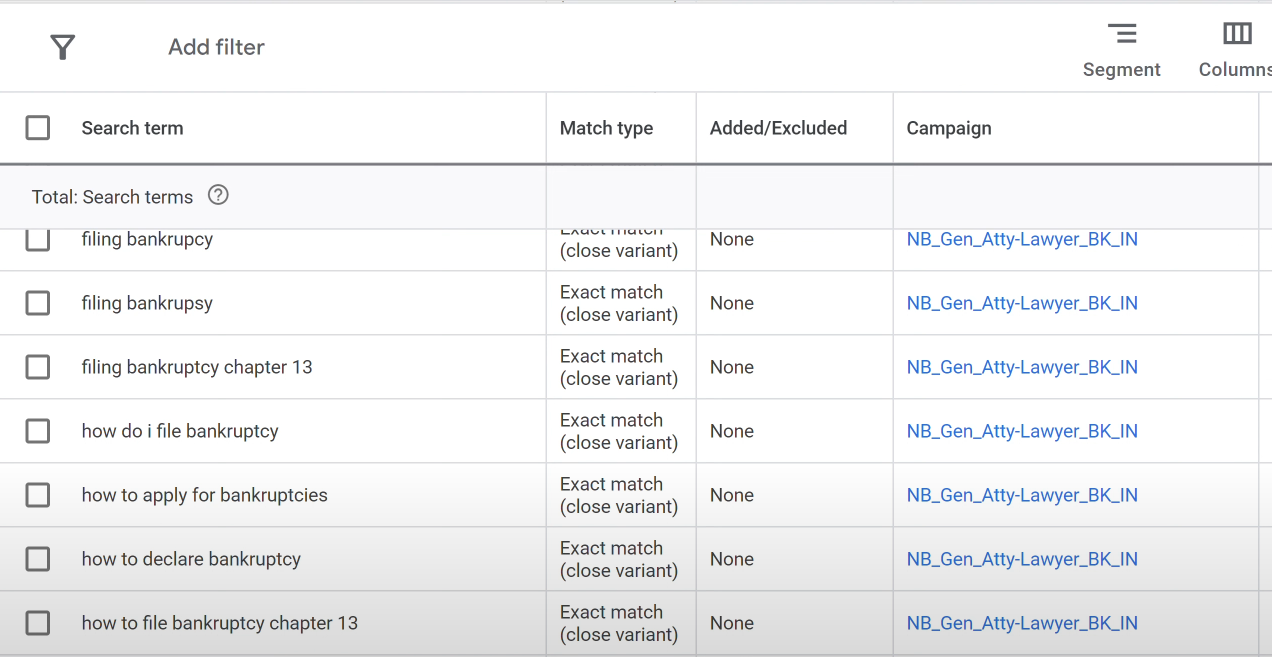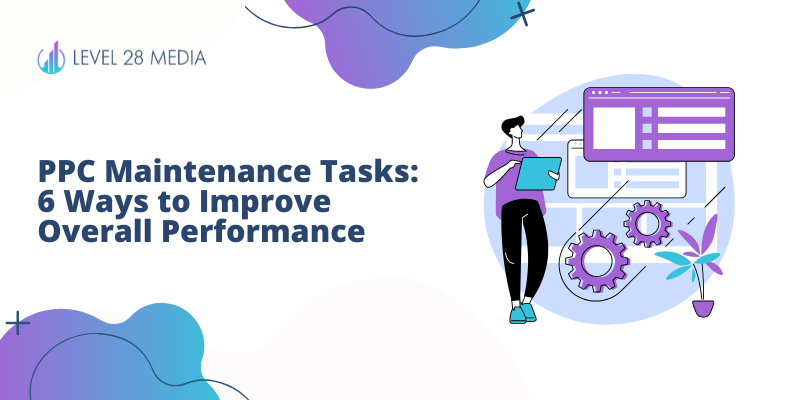Great, you’ve launched your campaign – so what’s next? If you don’t have a list of maintenance activities then your PPC campaign will fall by the wayside.
Many advertisers make the mistake of setting up their campaign and forgetting about it. Maintenance is just as a big part of your success as the setup when it comes to PPC. You never want to take your “foot off the gas” for your PPC campaign.
In this blog, we will discuss exactly why maintenance is important and go over six things that you need to add to your PPC maintenance checklist.
Why is PPC Maintenance Important?
Routine PPC tasks help you stay in tune with what is going on in your account. Remember, your account isn’t static.
Keywords trends are always changing, Google is always making updates to its ads platform, and competitors are continuously adjusting their ads. New competitors will often enter the picture weeks or months after you started your campaign!
Maintenance is part of the ongoing optimization process to improve your performance. It shouldn’t be time-consuming either. But you have to know what you need to look for and have your checklist handy.
6 PPC Maintenance Tasks for Success
#1 Check for underperforming keywords
Some keywords that have been active since the first day of your campaign may not be performing well now.
Look out for keywords that are driving up your budget and are not producing any quality conversions. You can pause those keywords and use that money on higher-performing keywords or shift the budget to an entirely different ad group.
You don’t want to make these changes blindly. Look at the data. Is the cost-per-click CPC up? Are the clicks low? Some metrics that you want to check are the CPC, overall clicks, impressions, or cost. If these changed over time, is it due to seasonality? Or is the landscape changing?
#2 Conduct additional keyword research
Many people overlook ongoing research and only focus on that at the beginning of the campaign. Seasonality and trend changes can affect your campaign – there may be better or new keywords that you can test out!
This is a task that can be completed on a quarterly basis. Use tools such as SEMrush, Google Trends, or Google’s keyword planner to view trend changes.
It can also be helpful to survey your customers to better understand how they search. They may be using terms that are not currently covered by your current campaign.
#3 Continue to build out your negative keyword list
Noticing that your ads are showing up for irrelevant keywords and it’s costing you a big chunk of your budget? Then it’s time to start building up your negative keyword list and continue maintaining it.
Since Google’s keyword match type updates, it’s becoming more important to keep an eye out for new negative keywords you can add. Phrase match tends to act more like a broad match modifier of the day’s past. And now exact match isn’t quite as exact as it used to be.
To build out your list, your search terms reports will be your best friend. It will show exactly which of your ads are showing up for which search terms. You should look at the report on a weekly or biweekly basis.

This doesn’t mean you’ll always have a negative keyword to add, but it’s good to get into the habit of looking. If months have gone by, you probably already spent too much money on irrelevant clicks.
Building this list can also help you increase your ad quality scores which saves money in the long run.
#4 Review the lead quality and conversion data
If you are pouring time and money into PPC ads, then you want to make sure these are high-quality conversions.
A common complaint from inexperienced PPC advertisers is that they aren’t seeing leads. This is often due to poor conversion tracking or they aren’t thoroughly looking at the leads that are coming in.
For example, let’s say you haven’t seen any quality calls coming through even though your PPC account indicates that you have gotten 5 calls in the last week. It’s time to look at your call tracking data. Are these genuine calls that are coming in? Or is your staff dropping the ball on converting these calls into actual leads? Are people confused about what they are calling about?
If you are tracking form submissions, then you want to ensure these prospects are inquiring about the right services. Are they ready to buy? Or are they price-shopping? Gathering this info can help you adjust your strategy. This can be bidding on more affluent searchers, adjusting your geographic area, or even making edits to your ad copy!
Checking your lead quality gives you greater insight into if there’s any friction in the customer purchasing journey.
#5 Review your key performance metrics
By reviewing your data on a daily or weekly basis, you can see what is working and what needs to be optimized.
Some common metrics to review are the number of clicks, click-through-rate (CTR) percentage, CPC, and conversion data. However, the metrics that are important will depend on your PPC goals. Metrics for a brand awareness campaign will be a lot different than one focused on generating phone calls.
If you are A/B testing (or first launching your campaign), give your ad enough time to collect the data and then compare the changes.
#6 Keep track of your daily budget
Budgets are not fixed, so you can easily go over your budget if you aren’t careful. Google can spend up to 2X your daily budget if you don’t watch it!
These tasks should be completed on a weekly basis. Look at metrics by day and device to see if you should be allocating your budget elsewhere.
For example, your ads are generating more traffic on certain days, then shift your budget to those days. Or if you see that cost is increasing on tablet devices and there are no conversions, then you can decrease your bid adjustment.
You can also prioritize keywords that are seeing better results.
PPC Maintenance Tasksand Optimization are Keys to Your Success
Being actively involved in the ongoing evolution of your PPC campaign will produce the best results. Noticing small dips in performance will save you money in the long-run and generate more leads.
Just like with your other marketing efforts, PPC doesn’t do well with a set-it-and-forget-it approach.

Michelle Kop is a marketing consultant and award-winning pay-per-click marketing strategist. She has over 8 years of professional paid advertising experience in Google and Microsoft Ads, with a specialization in lead generation for B2B and B2C companies.
After working in corporate marketing with Fortune Global 500 Brands like Toyota and BP, Michelle founded Level 28 Media, a lead generation micro-agency for small to medium businesses.


